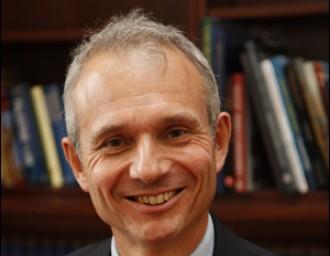The improvement of EU-Belarus relations is in Belarus’ hands, UK Minister for Europe says

A prosperous and stable Eastern Partnership is in the interests of all, claims David Lidington, Minister for Europe at the Foreign and Commonwealth Office in the interview with Belarusan journalists.
The EU’s eastern neighbours are an integral part of Europe. They share our European history and culture, and seek to build an independent and prosperous future as sovereign nations free from outside pressure and influence. Their importance to the EU is unmistakable.
Eastern Europe has seen many fundamental shifts since 1991. The spread of democracy, open market economies, and respect for the rule of law have transformed the political landscape. Further efforts are needed to entrench and develop the reforms that have been undertaken so far. And in support of such change, the EU has offered Association Agreements, including Deep and Comprehensive Free Trade Areas, that will allow companies in the region the opportunity to grow by developing their trade with the world’s largest marketplace.
In Vilnius the leaders of the European Union are meeting with representatives of our nearest neighbours to the East. At the summit Georgia and Moldova are initialling Association Agreements, marking a new stage in the EU’s relationship with these important partners, and recognising the significant commitments they have made, and action they have undertaken, to equip themselves to meet the challenges of the 21st century.
Armenia has taken the decision not to join Moldova and Georgia in initialling an Association Agreement at Vilnius. This is a disappointment. The UK remains keen to see Armenia and the EU work together to continue Armenia’s reform process, free from external pressures.
We look forward to further EU engagement with Azerbaijan, and I hope that momentum can be built in negotiations towards an Association Agreement.
In time, we hope that the EU-Belarus relationship will improve; this is in Belarus’ hands and I continue to urge Belarus to make the necessary reforms to make this a reality.
The EU door remains open, and this is our message for Ukraine too.
It was deeply disappointing that the government of Ukraine announced last week that it had decided to put signature of an Association Agreement on hold. I sincerely hope that the Ukrainian government will resume its preparations to sign the Association Agreement soon; and I urge them not to lose a moment in effecting the reforms that the country needs. Ukraine’s leaders have a historic choice before them, to embrace the long-term vision of a European future and the prosperity and stability which that brings, or to turn the clock back and turn away from the world’s largest and most successful trading bloc.
No-one is arguing that transformation or modernisation is easy or quick. But the experience of countries such as Poland, the Baltic States, Slovakia and Slovenia shows that it can be done successfully where the political will exists. And what the serious studies on the impact of Association Agreements have shown is that these accords offer a real opportunity for living standards in this region to catch up with those of their neighbours.
It is in everyone’s interests that Eastern Partnership countries become more prosperous and stable. Opening the door to the West doesn’t close the door to the East. The Eastern Partnership is good for the region and for its neighbours.
In Vilnius the EU is demonstrating its commitment to the Eastern Partnership. The Eastern Partnership is not just a concept or slogan for the UK or EU. It is an expression of EU commitment to its eastern partners, to their economic prosperity and their future. The Association Agreements offer hope to the region that the economic prosperity and standards of living of the EU can be theirs too. This will take time, and no one is blind to the challenges, but what these Agreements show is that in a time of change, the EU stands by your side.
The interview was originally published at BelaPAN.
-
03.01
-
07.10
-
22.09
-
17.08
-
12.08
-
30.09








































